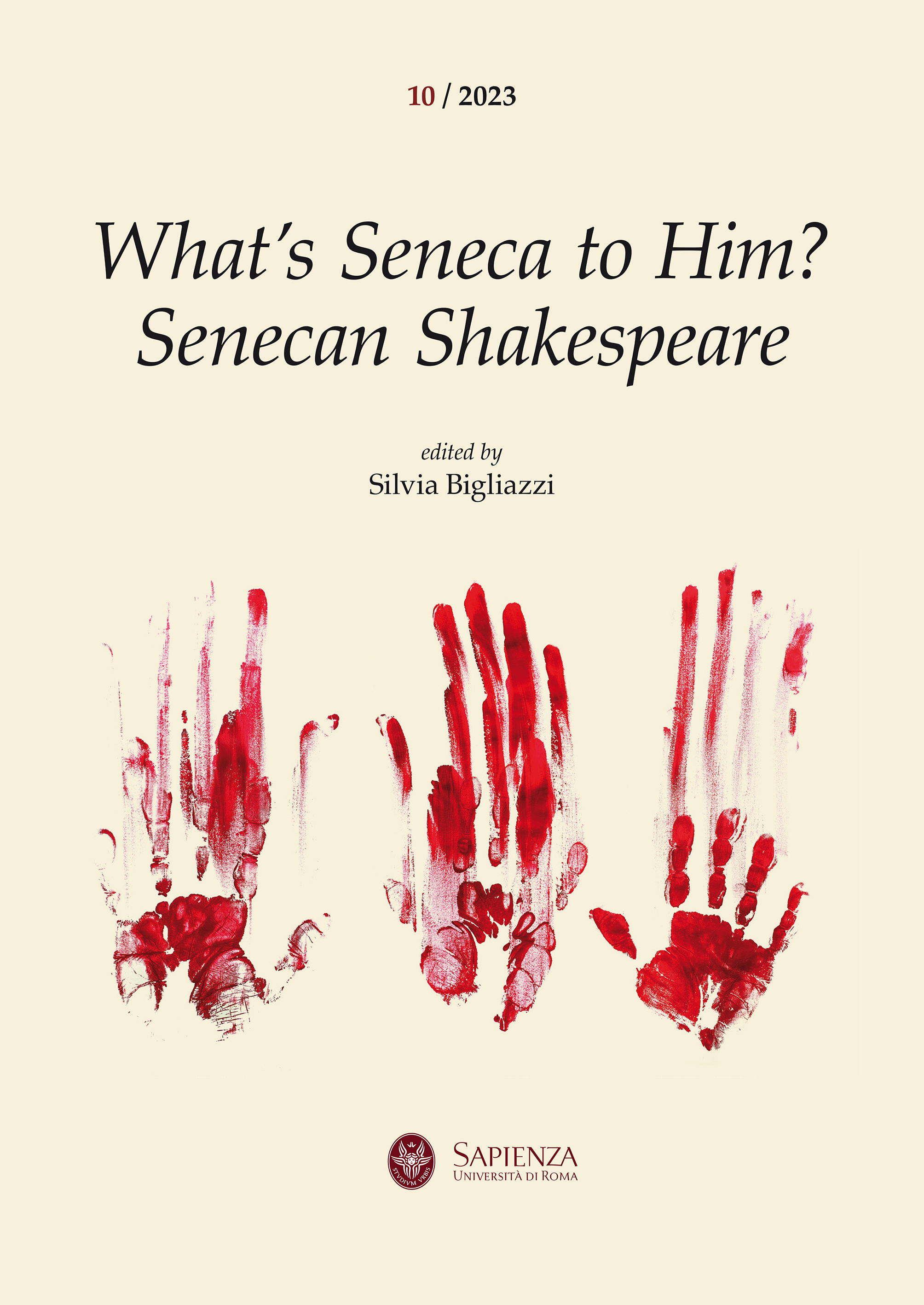The Dark Side: Seneca and Shakespeare
DOI:
https://doi.org/10.13133/2283-8759/18615Parole chiave:
Shakespeare, Titus Andronicus, Macbeth, Hamlet, The Tempest, Richard II, Othello, Seneca, Phaedra, Thyestes, Revenge, Intertextuality, Domina-nutrix dialogueAbstract
Seneca conducted Shakespeare on a journey through the dark side of human life – rage, madness, tyranny, revenge, and furor. This journey passed through infernal and nightmarish landscapes, per Stygia (“through Stygian regions”), per amnes igneos (“through rivers of fire”), and per scelera (“through crimes”). It introduced protagonists who dare to defy the gods and dislocate the universe by committing evils without precedent and beyond limit (modus). This experience of the dark side furnished Shakespeare (and most of the West) with resources for drama, especially tragedies like Titus Andronicus, Macbeth, Hamlet, Richard III, and Othello. We shall explore Shakespeare’s reception of these resources through three distinct but related modalities – quotation with and without Latin markers; the reimagination of extended passages, characters, and actions; and the refiguration of a convention, the domina-nutrix dialogue.


